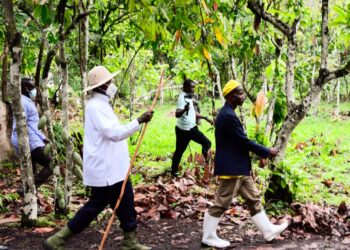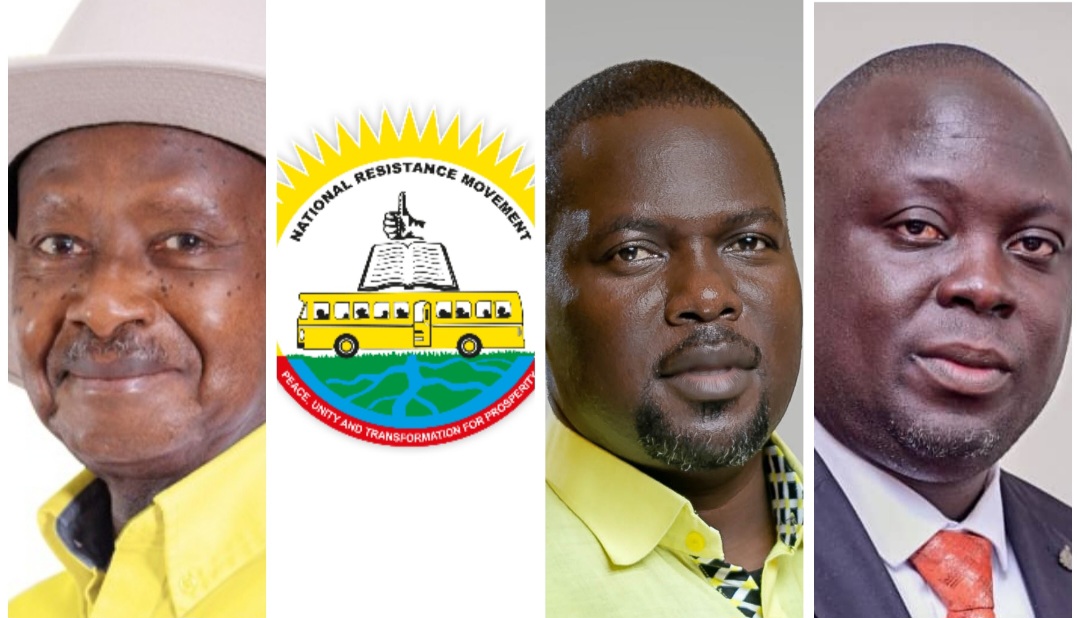As Uganda continues its journey to recover from the global pandemic’s impact on its tourism industry, experts are pointing to the nation’s rich cultural heritage as an untapped resource capable of boosting its position as a premier travel destination in East Africa.
During the recent second annual tourism development program review conference at Hotel Africana in Kampala, officials emphasized the need to leverage Uganda’s diverse cultural landscape to attract more international visitors.
Pearl Hoareau Kakooza, the Chairperson Board of Directors for Uganda Tourism Board (UTB) shared insights on how Uganda’s multicultural society, which hosts a variety of distinct traditions and practices, could become a powerful tool for attracting tourists. Kakooza noted that while neighboring countries like Kenya and Tanzania have their own tourism strengths, Uganda’s deep cultural diversity presents a unique comparative advantage.
“We have something truly special to offer that sets us apart,” Kakooza remarked. “Uganda is a country rich in traditions, with each culture showcasing unique features that draw in visitors from all over the world. This is the time to highlight our culture as a major tourism asset.”
Among the cultural gems that Uganda could promote, Kakooza mentioned the Kasubi Tombs and Namugongo, two of the country’s most significant cultural sites. The Kasubi Tombs, which have stood since the 1800s, serve as the final resting place for Buganda Kings, and are one of Uganda’s living monuments. Kakooza highlighted the historical and cultural significance of the site, explaining that its deep-rooted history and the stories tied to its existence could captivate travelers eager to explore Uganda’s heritage.
Uganda’s tourism sector has already shown significant signs of recovery since the pandemic, with an impressive 82% of pre-pandemic tourism numbers returned in 2023. This resulted in over 1.27 million visitors, a 56.4% increase from the previous year. In addition, tourism contributed a substantial USD 2.8 billion to Uganda’s GDP, which accounts for 5.5% of the country’s overall economic output and supports over 610,000 jobs.
Richard Kawere, Principal of the Uganda Hotel and Tourism Training Institute, spoke during the conference about the importance of maintaining a consistent marketing strategy for Uganda’s tourism offerings. Drawing parallels to global brands like Coca Cola, Kawere stressed the need for a long-term, resilient approach to promoting Uganda’s unique tourism products.
“We can’t afford to stop marketing Uganda. Even when results aren’t immediate, we must be persistent and consistent in how we promote our tourism sector. We should focus on our strongest products, such as cultural tourism, and use them as a gateway to showcase the rest of what Uganda has to offer,” said Kawere.
The Ugandan government has also been proactive in prioritizing tourism as a key economic driver. Finance Minister Matia Kasaija announced that the upcoming budget for the 2025/2026 financial year will include provisions for unlocking barriers to tourism development, particularly in improving infrastructure and connectivity. This includes the enhancement of tourism roads, better ICT facilities, and the expansion of security measures to ensure a safer environment for both tourists and locals alike.
“We are committed to creating an environment that fosters growth in the tourism sector,” Kasaija affirmed. “This means improving our tourism infrastructure, offering enhanced security, and addressing any negative perceptions of the country that may arise due to travel advisories.”
The Ministry of Tourism, Wildlife and Antiquities has also been active in its efforts to boost Uganda’s international profile.
Doreen Katusiime, Permanent Secretary of the Ministry, expressed pride in the sector’s continued upward trajectory. According to Katusiime, the resilience of Uganda’s tourism industry underscores the collective efforts made by the government, the private sector, and local communities in driving the sector’s revival.
The government’s commitment to tourism is reflected in its support for infrastructure projects, such as the construction of new tourism roads, the expansion of Entebbe International Airport, and the opening of new flight routes via Uganda Airlines.
With these efforts, Uganda is positioning itself to not only capitalize on its natural beauty and wildlife but also to become a leading destination for cultural tourism in Africa.
By emphasizing the nation’s rich traditions and iconic sites, Uganda hopes to attract more travelers seeking unique and authentic experiences that can only be found in the heart of East Africa.
Do you have a story in your community or an opinion to share with us: Email us at editorial@watchdoguganda.com












